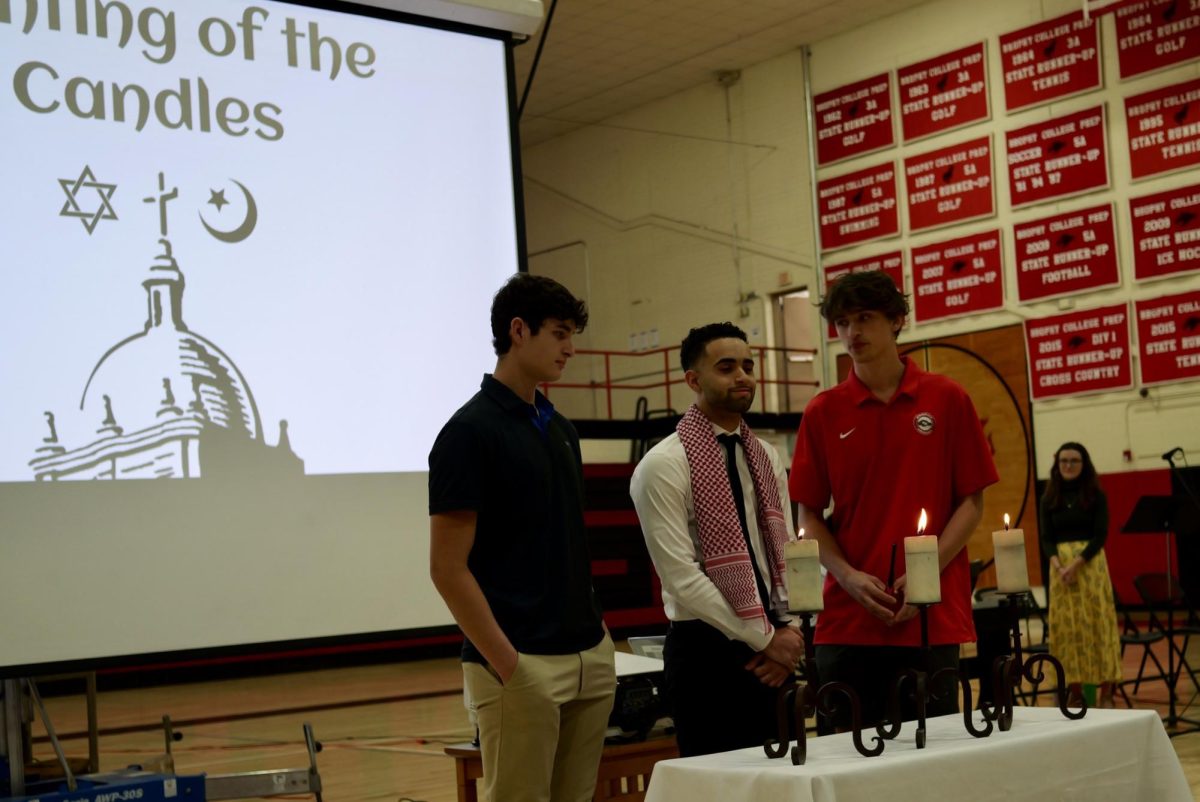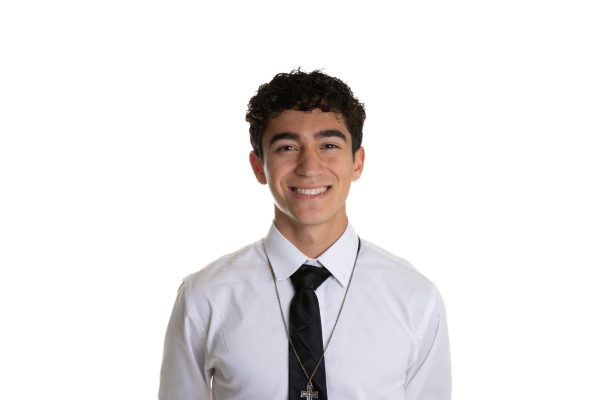It can be hard to see what impact a student at a Jesuit high school in Arizona may have on a crisis taking place over 7,000 miles away. At The Roundup, we see the importance of discussing the issue despite the difficulties in those conversations; that said, navigating the delicate balance between transparent journalism and the complexities of the topic has required the suspension of our work.
But in the words of spiritual community leader Pinchas Allouche, “Any type of change starts with the micro, not with the macro. Sometimes by influencing just one person, we’re influencing the entire world.”
As a community, fostering connection and brotherhood in this time is extremely important, and this only happens with productive communication about the impact and scope of the conflict. We have to focus on uplifting each other and growing amidst a difficult time rather than tearing each other down by taking sides and suppressing this reality that affects so many people.
Few events in recent history are as hard to discuss as the Israel-Hamas conflict. All conversations seem to culminate with resentment and hurt feelings. Regardless of one’s stance, there will be opposition to what they say, and this often leads to very quick and passionate disagreements.
Talking about the conflict is not meant to be inflammatory, but having a productive conversation on this topic is usually impossible because after just a few minutes, sides must be taken and people become defensive.
Our goal in talking about the conflict shouldn’t be to prove the validity of one group over another, but rather to build community in a diverse group of people being torn apart. Not being able to have peaceful discussions about this topic only strengthens the resentment and divide in a time when brotherhood and connection is more important than ever.
At the end of the day, members of our community are suffering as a result of this conflict, and our goal as a school isn’t to be the jurors of morality but to be men for others in need.
It doesn’t matter how the crisis affects someone. The fact of the matter is that this conflict is a taboo subject that makes people uncomfortable.
In the digital age of conversation, we have seen a trend of listening to respond and take action rather than to understand, and this current conflict seems to be a manifestation of these practices.
Schools such as Cornell and Columbia University are being forced to cancel classes and move online due to anti-semitic comments and threats against Jewish students. “The statements prompted officials to send police to guard a Jewish center and kosher dining hall as unnerved students feared for their safety,” according to AP News.
People are getting berated online for sharing their opinions or even choosing to stay silent. A guest essay from the New York Times said, “As I scrolled through my timeline, I saw lots of random citizens being told that if they didn’t speak out, they, too, would have blood on their hands.” Staying quiet is now being seen as a sign of disagreement or opposition.
Even mislabeling the conflict can cause fiery reactions and a flood of potentially violent reactions. Students and professors at Stanford University sent a letter to the temporary president criticizing the use of the words “Middle Eastern Conflict” to describe the situation stating that it was a “tepid response to the crisis.”
Talking about the conflict is the only way to make meaningful progress toward peace, but the silence and discomfort surrounding this topic only fosters a wider division and harsher feelings of disagreement.
Productive conversations about the crisis rely on a willingness to listen and understand the situation of those affected rather than prove a point or defend a side.























